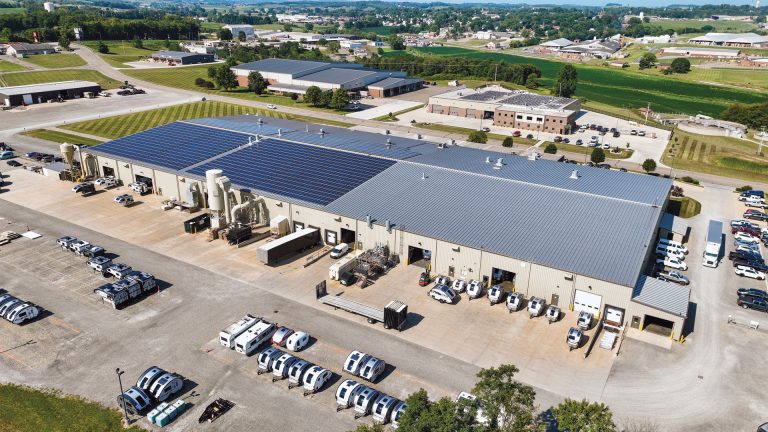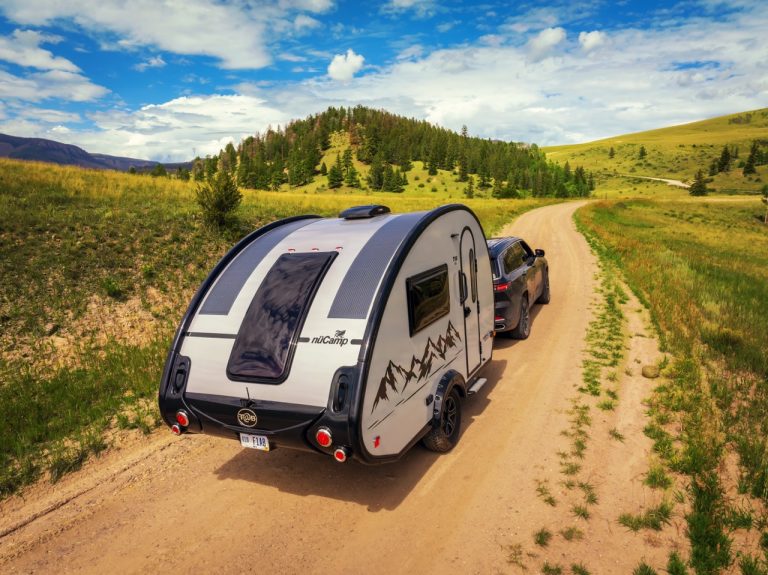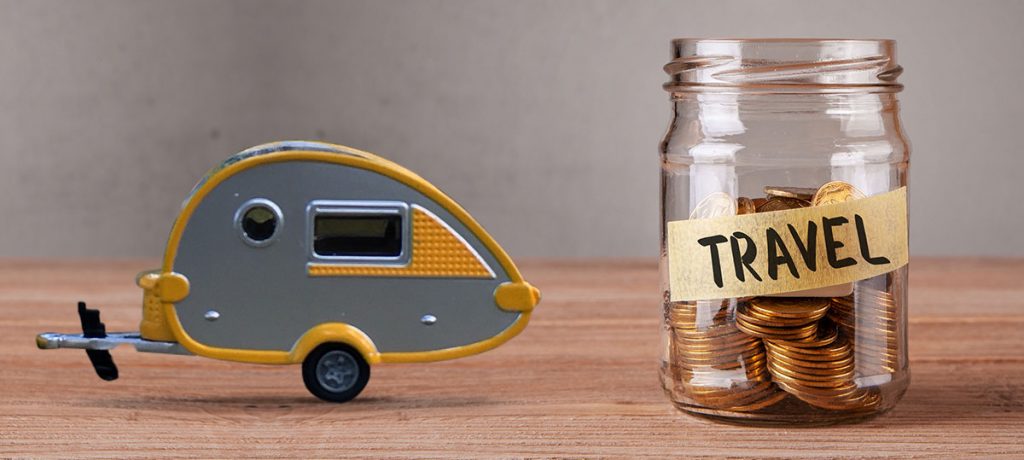Considering buying a towable camper? Crunch the numbers first so you know what to expect. Besides the cost of the camper itself, you will need to budget for ancillary expenses and operating costs.
Purchase Price
The cost of a towable RV can range, depending on the size of the camper and the amenities and equipment it comes with. (Not sure what you need? Read our Choosing a towable camper—what to consider). For example, pop-ups can cost around $4,500, TAG teardrops about $17,000, and TAB camper about $22,000.
But you also need to consider if your current vehicle can safely tow the camper you choose. Otherwise, you may find yourself with a towable camper and nothing to tow it with! Numbers to know include your vehicle’s tow rating, Gross Axle Weight Rating (GAWR), Gross Combination Weight Rating (GCWR), Gross Trailer Weight Rating (GTWR) and Gross Vehicle Weight Rating (GVWR).
Camper Report suggested using a VIN look up to identify any vehicle options your car, SUV or truck came with, including tow packages. You can also do an online search using your vehicle’s year, make and model plus the phrase “towing guide.” (Check US News & World Report ’s 11 Best Cars for Towing.)
Ancillary Expenses
Although campers come with warranties, make sure you know exactly what is covered and if it’s worth it to buy an extended warranty. According to TripSavvy, RV warranties, or RV extended service contracts, cover mechanical breakdowns on your towable or motorized RV. A “Listed component RV warranty” identifies what items are covered, while an “Exclusionary RV warranty” list items specifically excluded by the policy. Read the fine print and make sure you understand what the warranty covers, the length of coverage time for various components, and what situations or conditions can void it.
You may also need to purchase insurance for your towable camper, depending on where you live, if you have financed its purchase and whether your finances can absorb a “total loss” type incident. (Keep in mind that your personal items will need to be insured separately.)
And unless you’re a fulltimer, you will also have to factor in the cost of long-term storage for the camper for those months when you’re not on the road.
Also, check with your state department of motor vehicles regarding the need for and cost of an annual registration fee.
Operating Costs
You’re ready to hit the road—but what will the adventure cost you? Here are some line items to add to your budget.
Fuel Costs — Your cost-per-gallon for your tow vehicle will be less when it’s towing a camper behind it. And don’t forget the fuel for the generator plus propane if that’s what your appliances need to run. (Start with GasBuddy’s online Trip Cost Calculator, bearing in mind that towing a vehicle can impact the MPG for your vehicle.)
Campground Costs — Depending on your preferences, you can either boondock it (park without benefit of any hookups like electricity or water), go the full-hook-up route, or land somewhere in between. Campground fees vary, with some offering discounts if you have memberships to specific organizations.
RV Dump Fees – While you may find some at no charge, expect to pay a fee to empty your holding tanks. Some offer free refills for your freshwater tank. (Use the Sanidumps website to find dump stations in US and Canada.)
Maintenance and Repairs—Even the best-built towable will need a little lovin’ on occasion. Spending a little on regular repairs will ensure that your camper gives you years of satisfied service.
Recent Articles





